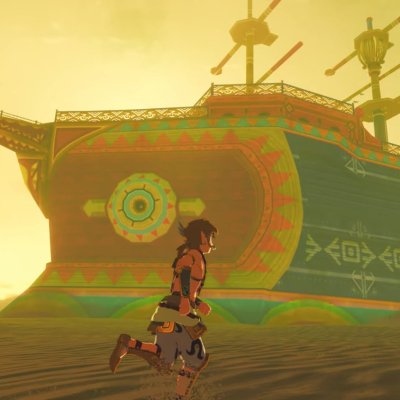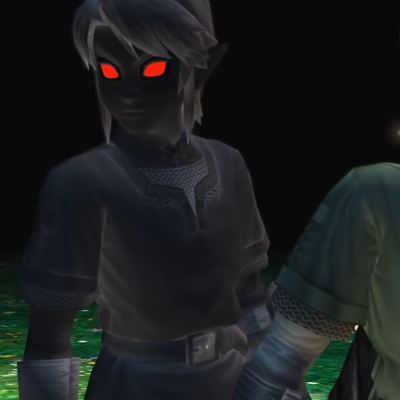The Legend of Zelda: Every Story Ranked Worst to Best
They're some of the greatest adventures in gaming history, but which Legend of Zelda story is the best of them all?
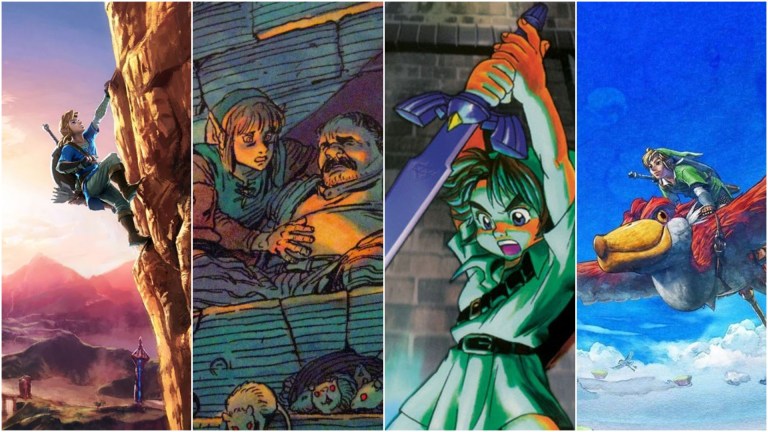
The Legend of Zelda is arguably one of the five most famous franchises in gaming history, but the one aspect of this series that never seems to get enough love is the quality of its storytelling.
Maybe it’s because the Zelda timeline can sometimes be a confusing mess, but the stories in Zelda games are rarely talked about and appreciated the way that we talk about and appreciate the best narratives in other fantasy adventures. Yet, if you take the time to play through this series and really focus on their narratives, you’ll find that the best Zelda titles often offer thrilling tales that challenge you with their complex continuity while wrapping you up in a grand adventure that feels strangely comforting no matter which wild directions this series goes in.
Before we dive into this list, though, here are a few rules I used to determine these rankings that may help explain the selection process:
- Only games that are considered to be a definitive part of the Zelda canon are included on this list. That means titles like Hyrule Warriors and the CD-I titles were not eligible.
- While the quality of these games’ stories “as written” obviously contributed to their ranking, additional factors like worldbuilding, villains, and NPCs were used to help determine the individual placements (so long as they contributed to the overall narrative in some way).
- “Best story” doesn’t necessairly mean “most story.” While Zelda games with more ambitious stories that are done well were given special consideration, simple stories executed perfectly were not necessairly punished for being smaller.
With that out of the way, here are the best Legend of Zelda stories ever:
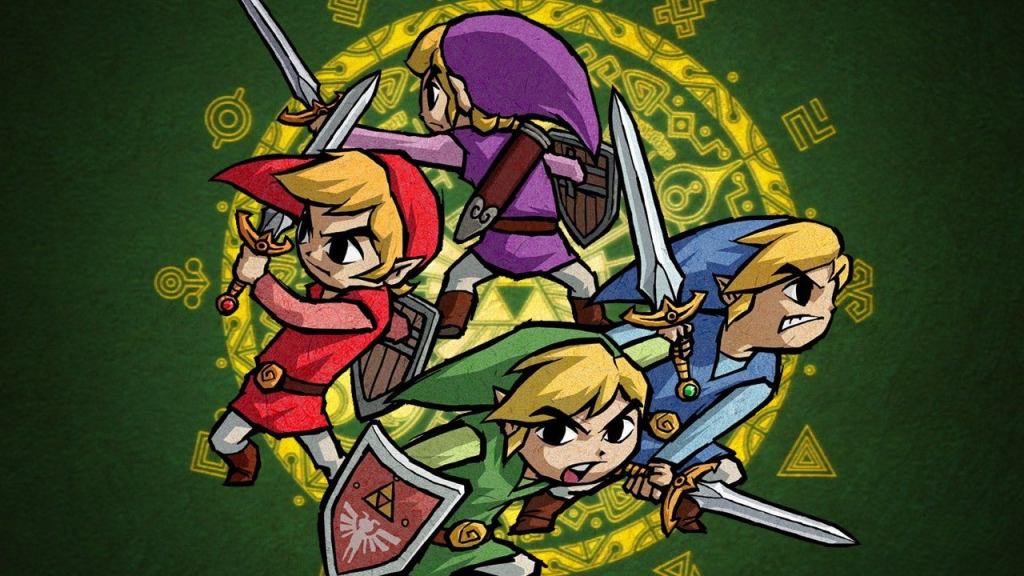
19: The Legend of Zelda: Four Swords
I nearly left the multiplayer portion of A Link to the Past‘s GBA port off this list, but since Four Swords features an original story that is considered to be canonical, it limps into this spot largely due to a technicality.
It’s not that Four Swords‘ story is so atrocious that I don’t want to talk about it but rather that there really isn’t much to talk about. Besides introducing Vaati (who would go on to do much more interesting things) and the Four Sword itself, this multiplayer mode’s narrative largely exists as a way to keep the co-op adventure moving along.
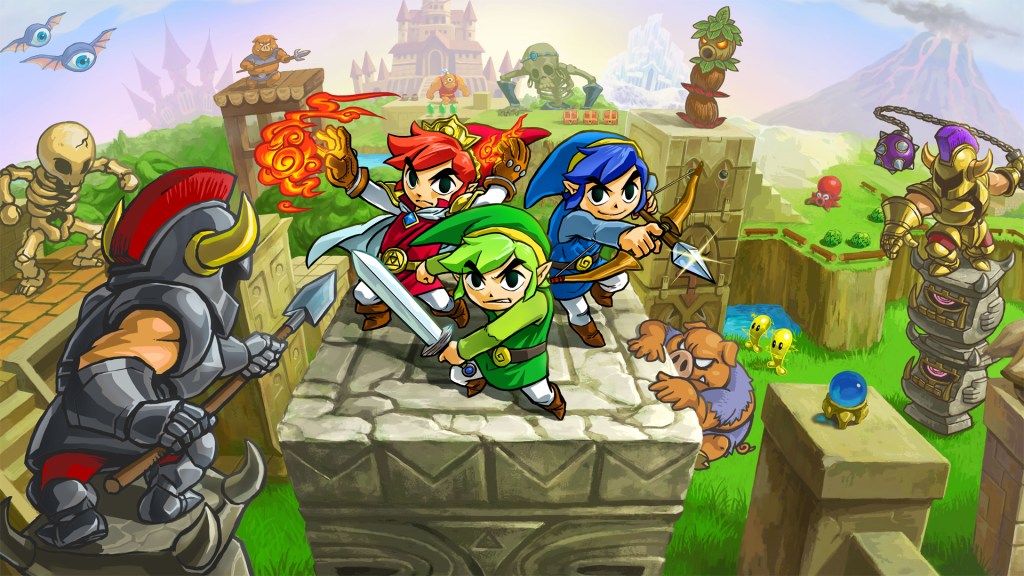
18. The Legend of Zelda: Tri Force Heroes
Tri Force Heroes is an incredibly strange part of the Zelda canon. This multiplayer-focused adventure is set in the kingdom of Hytopia where a witch has cursed Princess Styla to wear an ugly brown jumpsuit. It’s up to Link and his crew to help restore fine fashion to the land.
While I actually appreciate how fundamentally weird that premise is, I can’t help but feel like the developers missed an opportunity to tell a wacky “Superstar Saga” style story in the Zelda universe. Instead, they turned in a fairly uneventful and surprisingly dry narrative that ultimately doesn’t leave much of an impression.
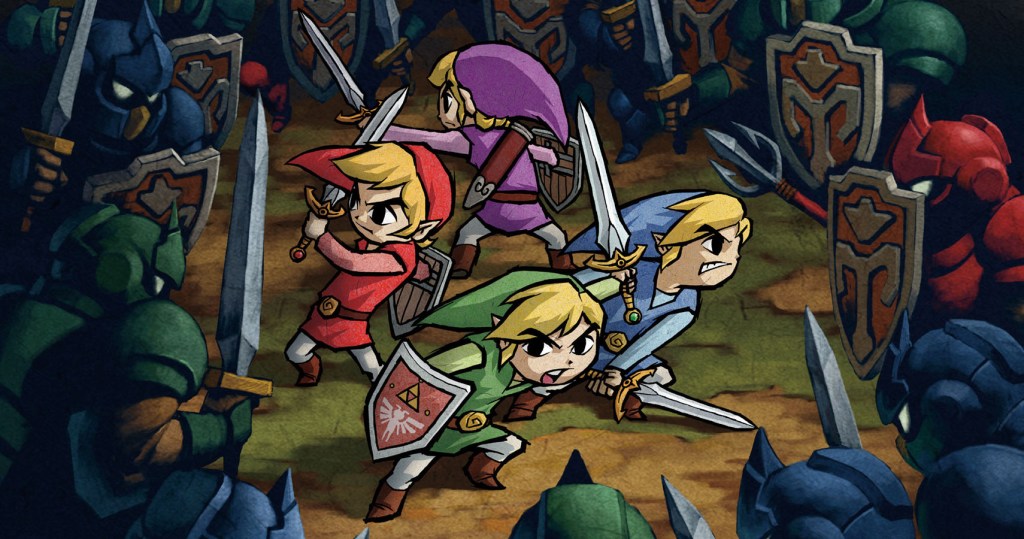
17. The Legend of Zelda: Four Swords Adventures
Strangely set at the end of the series “Child Timeline,” Four Swords Adventure sees Link and three of his clones battle Ganon, Vaati, and Shadow Link in an effort to once again save Hyrule and free its citizens from the Dark World.
I appreciate that a clear amount of effort went into trying to give this hardware hybrid multiplayer game a much more substantial story, but Four Swords Adventures’ narrative ultimately checks a few too many familiar boxes to be considered anything more than a curiosity best enjoyed by completionists.
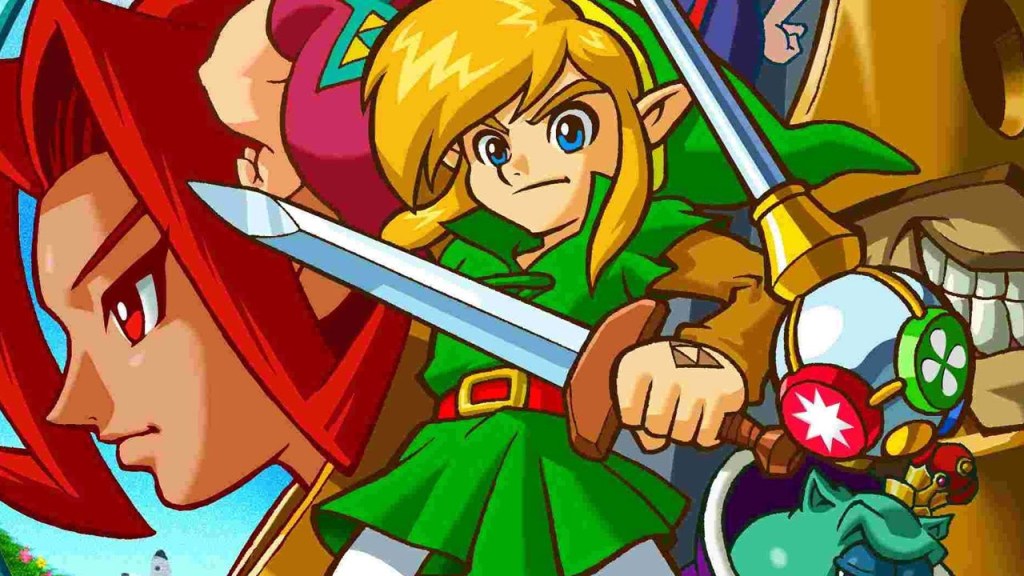
16. The Legend of Zelda: Oracle of Seasons
I understand why people sometimes lump Oracle of Seasons and Oracle of Ages‘ stories together whenever they think back on those connected titles, but each does eventually offer a distinct tale. Besides, whenever I look back on Flagship’s Game Boy Color Zelda tiles, I’m amazed by how thin Oracle of Seasons’ story really is compared to its companion.
Oracle of Seasons essentially tells a basic “save the girl” story (this time, Link must rescue a performer named Din) that is often amusing enough to keep you going but doesn’t take some of the ambitious swings that Oracle of Ages benefits from.

15. The Legend of Zelda
The game that started it all certainly did an admirable job of laying the foundation for what is arguably gaming’s greatest adventure franchise. Despite dealing with some serious technological limitations, the Zelda team still managed to squeeze in Link, Ganon, Hyrule, the Triforce, and many of the other foundational pieces that would go on to define this series’ mythology.
Yes, it’s a very simple story, but you have to give a lot of credit to the sheer ambition of this game’s narrative and the ways that it introduced so many ideas through the most barebones video game storytelling methods imaginable.
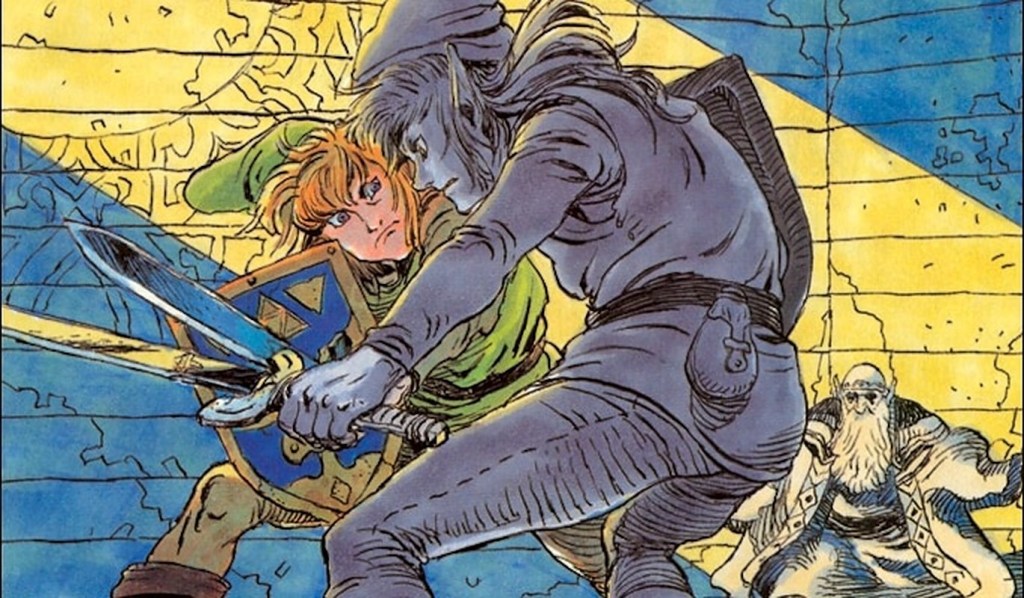
14. Zelda II: The Adventure of Link
The infamous “black sheep” of the Zelda franchise doesn’t have much of a story to offer, but this direct sequel to the previous game follows a slightly older Link on his quest to wake Zelda up from a magically-induced coma and prevent Ganon from being resurrected.
The Adventure of Link’s story also suffers from the limitations of its time, but I have to say that there is something admirable about the darker and more mature story that this game at least hints at during its best moments and surprisingly deep world-building. This game never suffered from a lack of ideas, and there are certainly interesting ideas in its narrative.
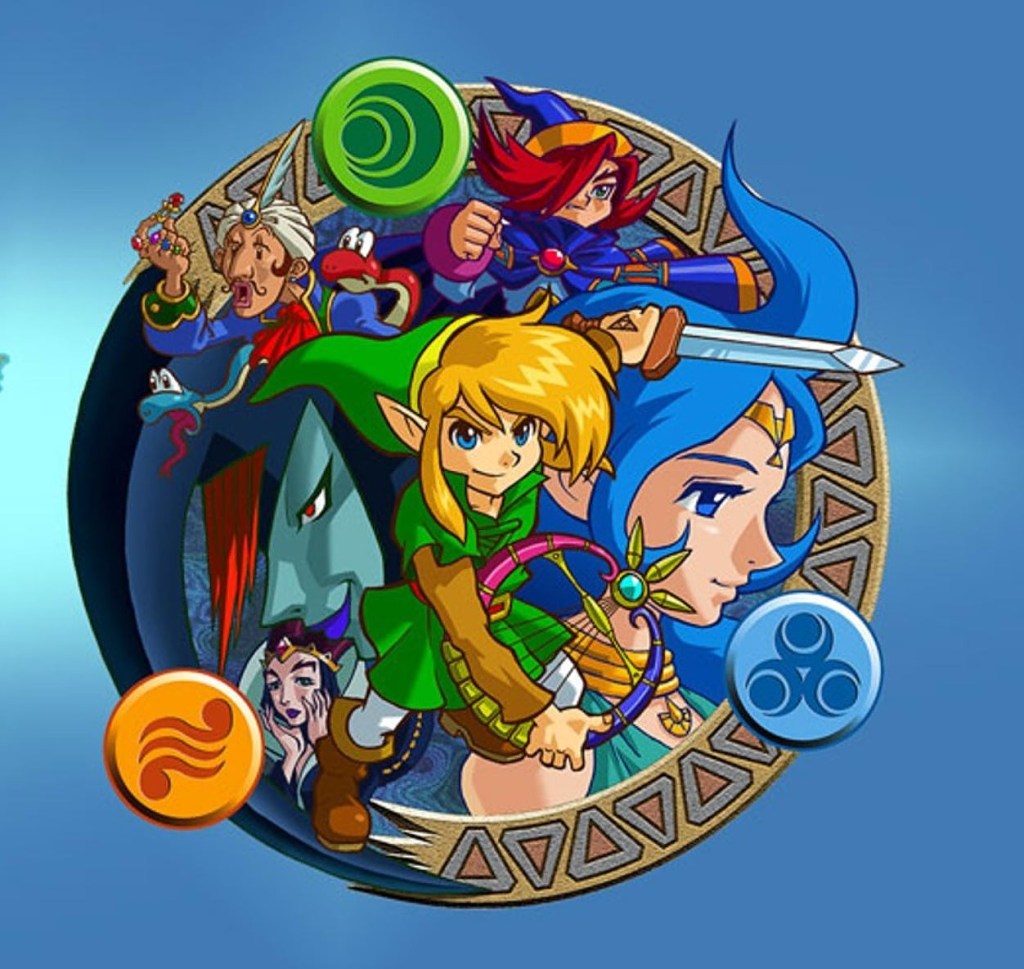
13. The Legend of Zelda: Oracle of Ages
Whereas Oracle of Seasons focused more on Zelda-style action, Oracle of Ages emphasized puzzle-solving and dungeons. It also features a surprisingly involved story (at least compared to Seasons’ story) which sees Link travel through time to defeat a sorceress named Veran.
While Oracle of Ages is still a fairly limited Zelda story at the end of the day, Veran is a pretty interesting villain whose time travel schemes grant this game a slightly deeper mythology that leaves you with a little more to chew on. I could certainly see someone arguing that Seasons’ simpler story fits these games’ size and style a bit better, but I respect Ages’ ambition.

12. The Legend of Zelda: Phantom Hourglass
As a direct follow-up to Wind Waker, Phantom Hourglass is one of the few “pure” sequels in the Zelda franchise. While you don’t necessarily need to play Wind Waker to enjoy this game, fans of its immediate predecessor will certainly get more out of this adventure tale that sees Link and Tetra hunt down a legendary vessel known as the Ghost Ship.
This is where the rankings start to get tough. I love the idea of Link going on this high seas adventure that isn’t as dependent on the greater Zelda mythology, but I just feel like other handheld Zelda games of this era did more with their narratives. This is a solid overall story that appropriately finds itself somewhere near the middle of the list.
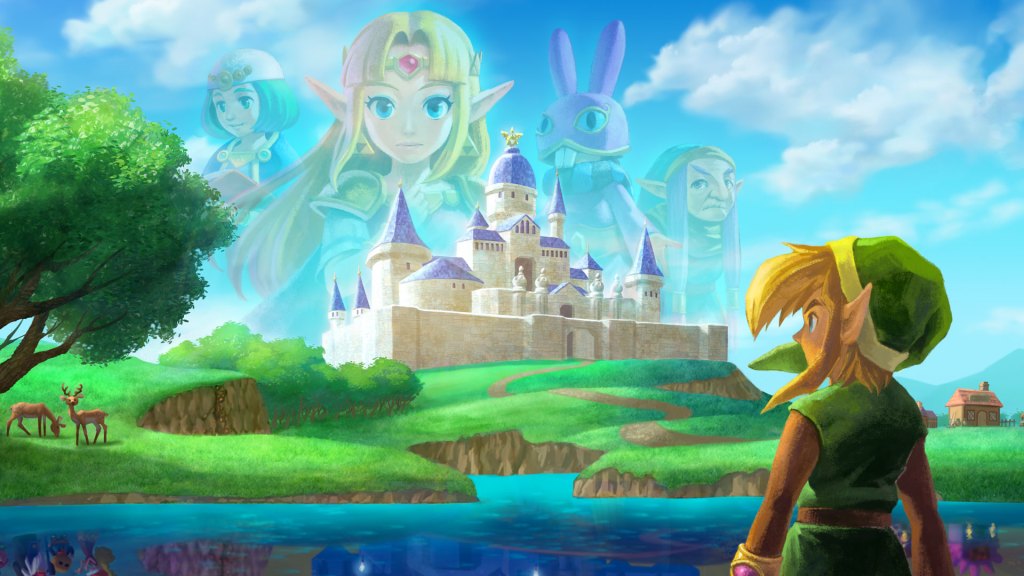
11. The Legend of Zelda: A Link Between Worlds
A Link Between Worlds begins with Link (a blacksmith’s apprentice) delivering a sword to Hyrule Castle but soon transitions into a slightly more familiar hunt for the Triforce. The big twist this time, though, is that a sorcerer named Yuga has cursed Link and unintentionally granted him the ability to transform into a painting and explore new dimensions.
As the spiritual successor to A Link to the Past, A Link Between Worlds certainly covers some of the ground we previously walked in that SNES classic. However, I think this game does a great job of incorporating its central gameplay gimmick into the plot while walking that fine line between the familiar and the new in a way that some legacy sequels sometimes struggle to do.
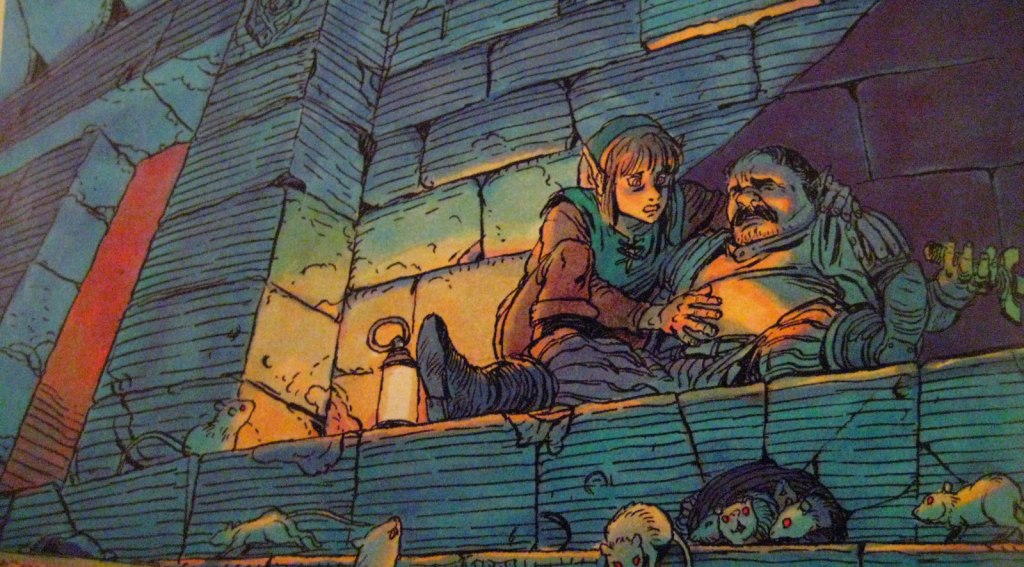
10. The Legend of Zelda: A Link to the Past
Much like the first Zelda game, I doubt I have to spend too much time reminding you about A Link to the Past. This all-time classic game took full advantage of the technological upgrades offered by the SNES and raised the bar for this series’ storytelling efforts with its surprisingly complex multi-dimensional tale.
It’s easy to take the whole “Light World” and “Dark World” thing for granted, but the way that this game manages to use that concept for fascinating environmental storytelling moments while still offering a slightly more traditional (though endlessly entertaining) fantasy adventure narrative is genuinely impressive.
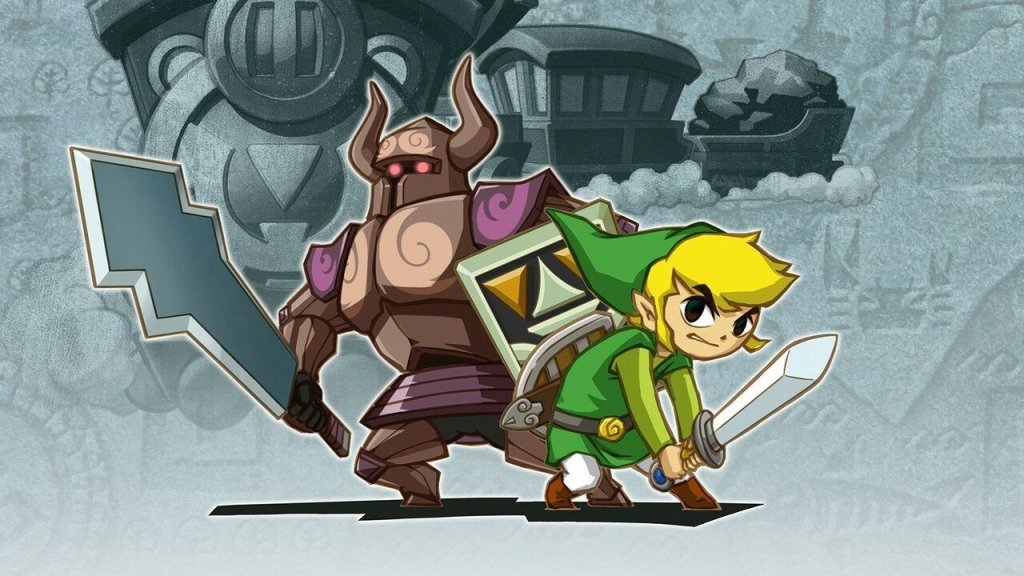
9. The Legend of Zelda: Spirit Tracks
Originally intended to be a quick follow-up to Phantom Hourglass, developer Nintendo EAD instead decided to take a little more time with Spirit Tracks and eventually turned in a truly strange tale about an engineer named Link who must navigate the land of New Hyrule where trains are the dominant form of transportation.
I know some prefer Phantom Hourglass’ story to Spirit Tracks, but for me, this game does a better job of distinguishing itself from previous Zelda adventures while offering a satisfying story built upon a genuinely bizarre premise. It’s true that the plot sometimes goes off the rails when you venture beyond the main quest, but there’s a shocking amount of compelling world-building in this game that greatly enhances the heartfelt adventure at its core.
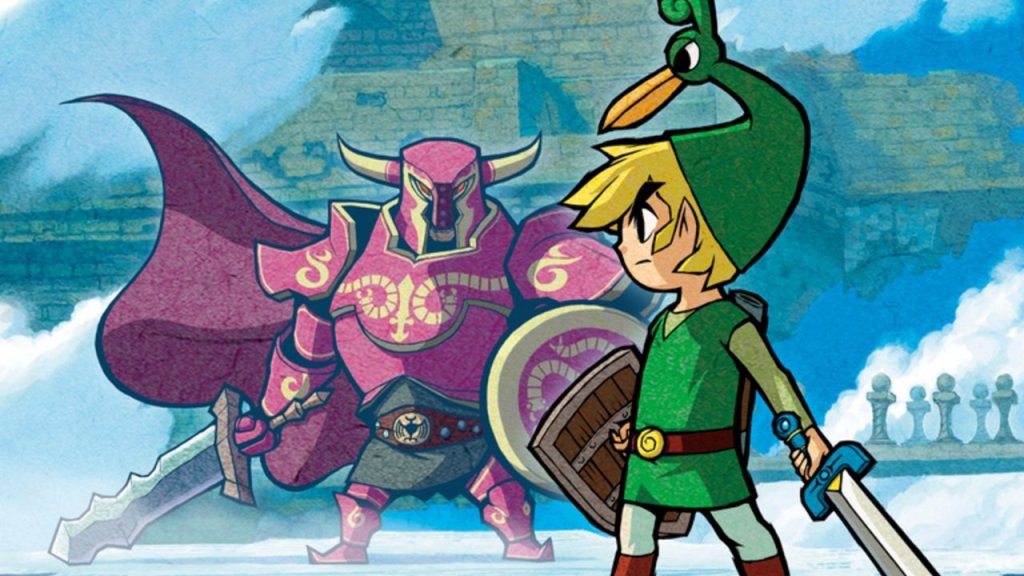
8. The Legend of Zelda: The Minish Cap
As one of the earliest games in the Zelda timeline (as well as the first Zelda game set in Hyrule proper), you’d think that The Minish Cap would die deep into the origins of this series’ mythology. While there are certainly moments of grand worldbuilding in this game, this handheld title presents a slightly more lighthearted adventure that focuses on a race known as the Minish and the battle against a sorcerer named Vaati.
Contrary to sometimes popular belief, Zelda storytelling isn’t always at its best when it goes incredibly dark, and The Minish Cap certainly shows how some of the best Zelda stories can keep things relatively light and still offer a genuinely compelling narrative. There’s a charm to this game that even great otherwise great Zelda titles have struggled to recreate.
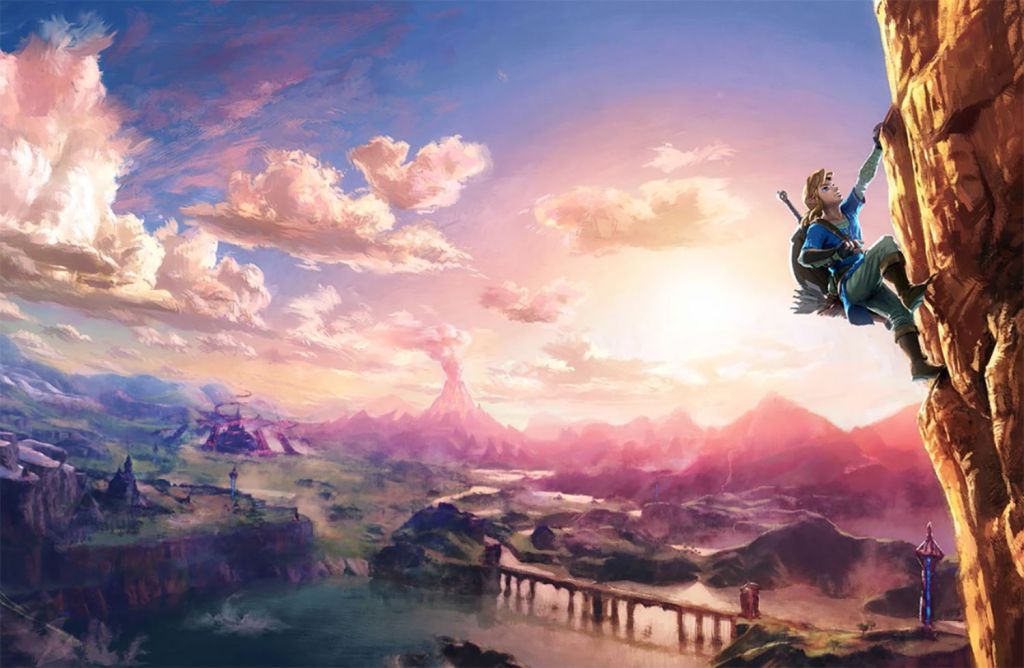
7. The Legend of Zelda: Breath of the Wild
I feel like this has become the most divisive game in the Zelda franchise from a storytelling standpoint. Some say Breath of the Wild‘s story is too depressing and too ambiguous, while others argue that you just need to take the time to discover its more subtle forms of storytelling and learn to embrace some of the ambiguity.
I tend to lean more towards the side of the BoTW story supporters, though I’m also somewhat split on the final product compared to the absolute best Zelda stories. This game doesn’t offer that kind of viscerally satisfying fantasy narrative that some of the other games in this series benefit from, but it does feature some incredible word-building as well as a few lore ideas that may not be “definitive” (at least not yet) but certainly lend themselves to some compelling conversations.
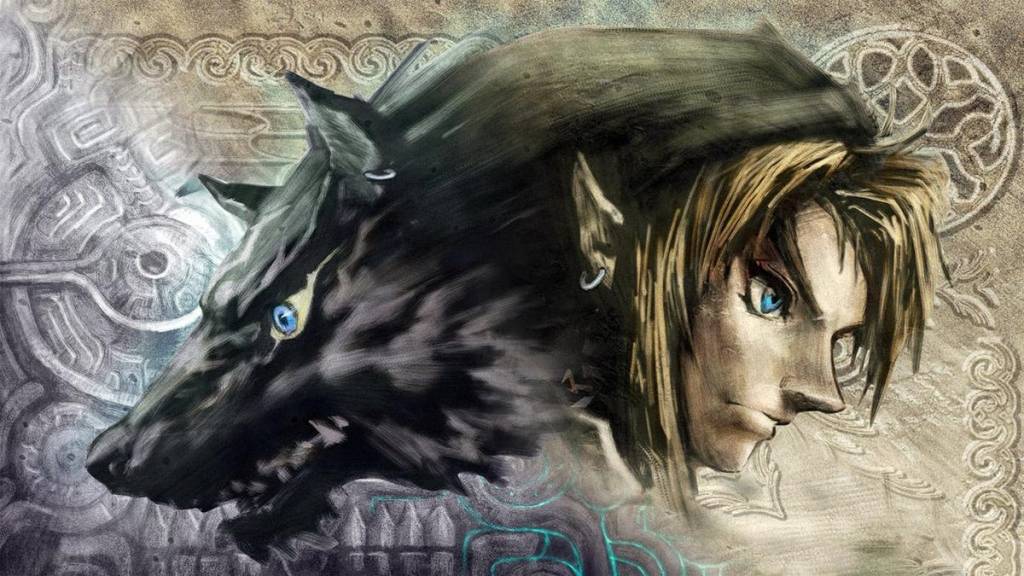
6. The Legend of Zelda: Twilight Princess
If Breath of the Wild doesn’t feature Zelda’s most divisive story, that honor would have to go to Twilight Princess. This story about a ranch hand named Link who finds himself quite literally thrown into a world of darkness starts strong (even if the title’s gameplay takes a little while to get going) but does falter somewhat down the stretch as some of the stories biggest ideas are replaced or brushed aside.
Twilight Princess certainly has pacing problems and doesn’t always do the best job of blending storytelling and gameplay, but it’s very easy to appreciate this game’s best ideas once you remove yourself from the moment-to-moment experience and re-examine it from a distance. This morally ambiguous (at least for a Zelda game) story does an excellent job of selling the scope and stakes of its biggest events while still finding the time to tell a number of smaller stories that challenge you to reexamine how you feel about the various characters and environments you encounter as well as how they all relate to each other.
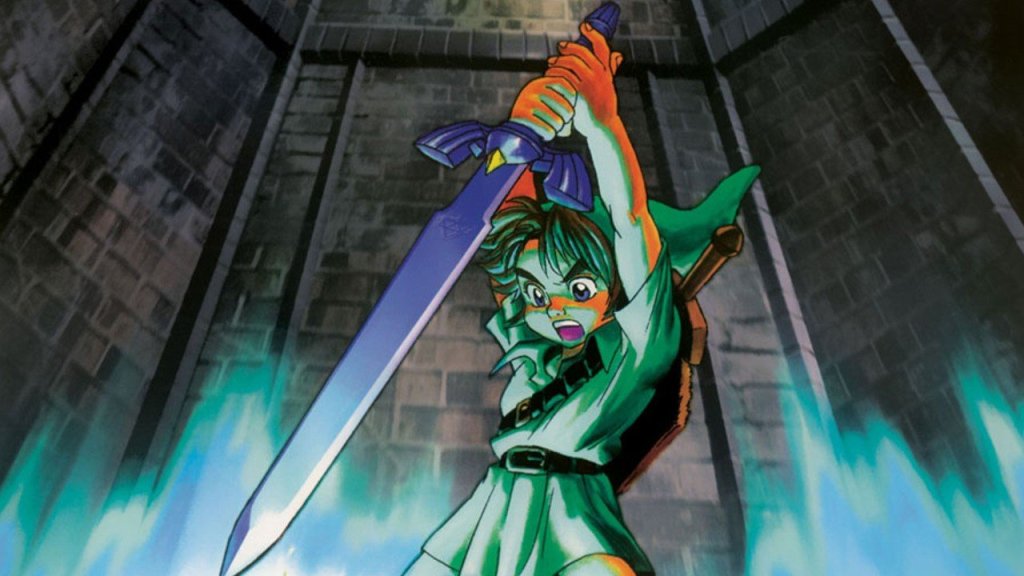
5. The Legend of Zelda: Ocarina of Time
The Zelda game that changed everything features a story that is both largely familiar and shockingly complex. Ocarina of Time may be built on the usual Zelda tropes, but it’s the way that this game plays with time travel and multiple timelines that helped it make the Zelda mythology so much more complicated and far more interesting.
Ocarina of Time’s story is strong enough to shine during even the breeziest playthroughs, but it’s when you start to dive into this game’s subtext and the ways it serves as this fascinating “breaking point” for the entire Zelda mythology that you really start to appreciate the work that went into this one. Sure, you could argue Ocarina also helped turn the entire timeline into a mess, but it is certainly a fascinating mess.
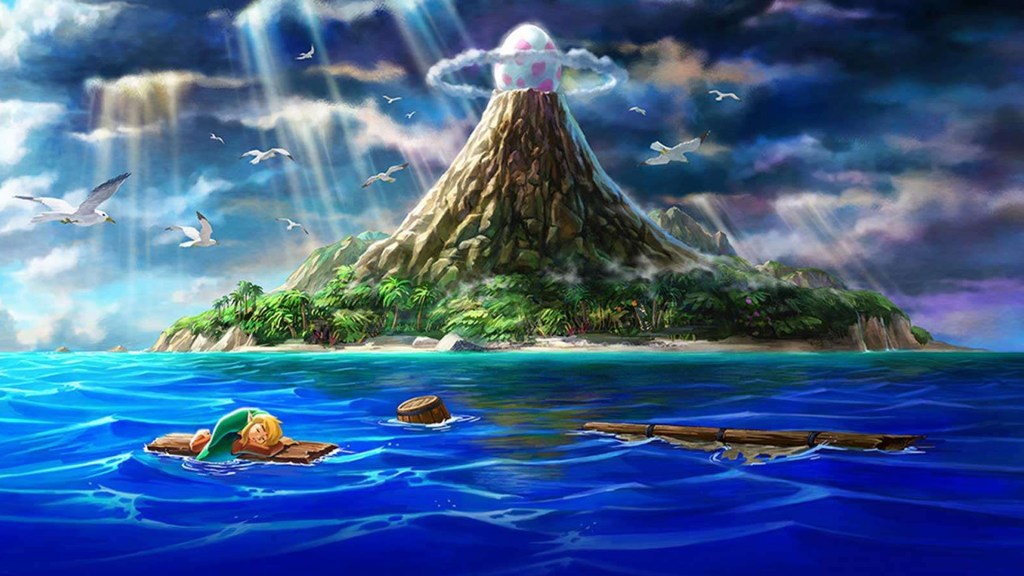
4. The Legend of Zelda: Link’s Awakening
The years leading up to Link’s Awakening’s 2019 remake were filled with fans begging anyone who would listen to them (and more than a few who wouldn’t) to please find a way to experience what they considered to be not only one of the finest Zelda games ever but one of the best Zelda stories ever told.
Well, I’m here to tell you that the Link’s Awakening fans have been right all along. I sometimes hear this game summarized as “the one where it was all just a dream,” but that summary undersells the brilliance of this game’s strangely twisted existential crisis themes or the ways it almost parodies classic Zelda concepts while reexamining and repurposing them. If it weren’t for the stunning quality of the three games above it, this one could have absolutely gone higher.
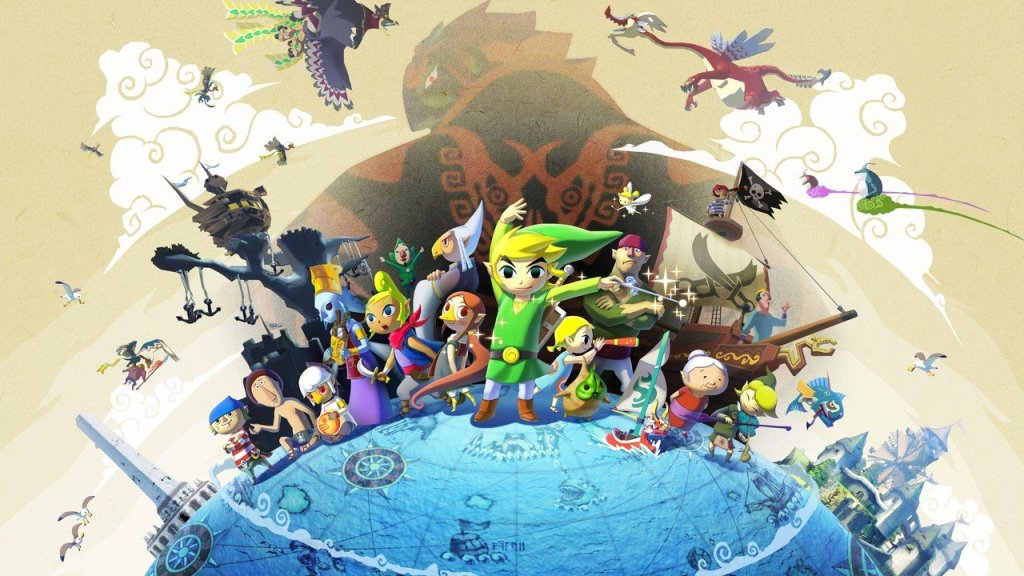
3. The Legend of Zelda: The Wind Waker
Unfairly maligned for years due to its “cartoonish” style, time has been kind to Wind Waker’s visuals, gameplay, and, most importantly for our purposes today, a story about the sunken world of Hyrule and a young boy named Link who must discover his destiny and save his family by sailing the high seas.
Wind Waker doesn’t feature the most complicated story in Zelda history, but there is a purity to this tale that puts it on any respectable shortlist of the best “adventures” in any Zelda game. I love the way Wind Waker enhances its well-told good vs. evil story with that wonderful sunken setting, and I have to respect how Nintendo managed to tie this game so cleanly to Ocarina of Time’s plot given that they’ve sometimes struggled to connect these games in the past.

2. The Legend of Zelda: Skyward Sword
While I’ve gone on record as being a Skyward Sword defender, I can certainly understand why there are still many fans who simply can’t stand this game. However, I think only the most dedicated Skyward Sword detractors would ever dare suggest that it doesn’t feature one of the absolute best stories in Zelda history.
Arguably the most cinematic Zelda game to date, Skyward Sword takes us back to the beginning of the Zelda timeline (at least so far) in order to shed a little light on the origins of this franchise while telling one of the only true Zelda/Link love stories in this series’ history. Skyward Sword should falter under the weight of everything it tries to do (as well as the burden of this franchise’s unwieldy timeline), but it instead manages to offer a narrative that reminds us of this series’ best qualities while raising the bar in nearly every storytelling area.
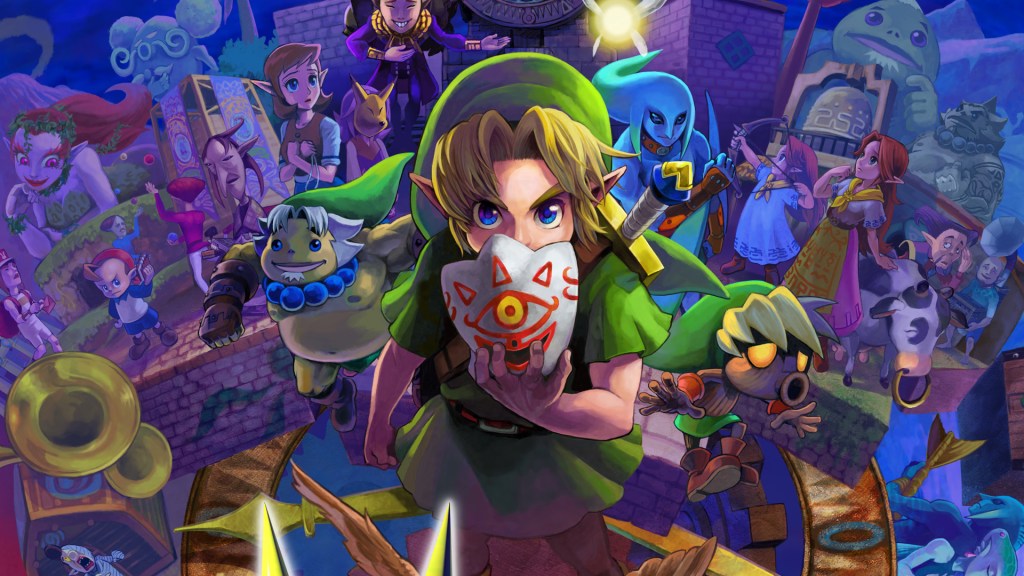
1. The Legend of Zelda: Majora’s Mask
Long before more and more creators across different mediums took a stab at what we now know as the “time loop” subgenre, Majora’s Mask was described by some as the “Groundhog Day Zelda game.” Truth be told, the way that Majora’s Mask expertly managed to navigate those tricky storytelling waters despite having so few comparable works (especially in this medium) to reference makes it one of the most impressive narratives in franchise history.
What really puts this one over the top, though, is the quality of the various little stories in Majora’s Mask. Much like Link’s Awakening, Majora’s Mask zooms out from the typical Link-centric adventure in order to really sell the lives and stories of the people of this world who are now threatened by an impending apocalyptic event. Even if there were more Zelda games that gave their NPCs the rich stories they enjoy in this adventure, I doubt they would execute that tricky bit of storytelling as well as Majora’s Mask does. Whenever you’re not discovering some wonderful little story out in the world, you’re working to uncover the truth behind one of the most bizarre events in Zelda‘s history. The exact meaning of much of what happens in this game continues to confound even this franchise’s dedicated lore hunters, which is really a testament to the compelling conversations they’ve inspired for nearly 22 years after this game’s release.
Majora’s Mask may be anything but a traditional Zelda story, but its spot at the top of this list is less of an indictment of this franchise’s other narratives and more of a testament to the quality of this adventure and how favorably it compares to even some of gaming’s greatest stories.

